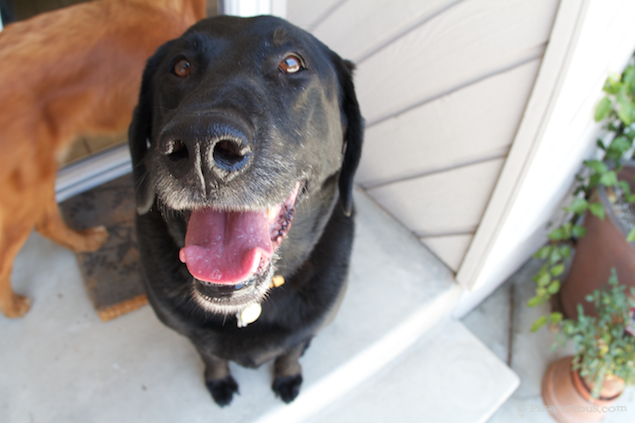We, the collective animal loving internet, have done a great job of telling people to “Adopt, Don’t Shop.” We do it so much that people say it without thinking, assume without asking, and demand without discourse. Now, don’t get me wrong: I absolutely support the concept, and this is why I am here writing a post today in honor of Petside’s Pet Net Adoption Week. It’s why I’ve adopted lots of pets over the years. But this is only half the equation.
We tell people they should adopt, and why they should adopt, and then do nothing to support people during the transition. Here’s the reality: pets do get returned to shelters and the rescues, usually for reasons that could have been avoided with a little owner education and preparation. In the rush to get pets out into homes, we sometimes neglect to make sure those homes are ready and willing to take on the challenges, which are rewarding beyond measure once you get past them- as long as you know they are coming.
1. Be honest with adopters about the pet’s behavioral issues that need to be worked on.
Nuke, the 10 year old coonhound I adopted from UC Davis, was a moderately neurotic agoraphobic hound dog who had never been housetrained. Translation: I left him outside when I was gone, as the well meaning person at the school had recommended, only to have him howl inconsolably because he was scared of being outdoors. I got a notice from the neighbors within 36 hours.

I wouldn’t say crate training an elderly, set in his ways dog was an easy task, but I did it, only because I had access to professionals who reassured me that with patience, it was possible. He never did learn to sit on command, but he ended up housetrained, and we had three lovely years together before he passed away.
Koa has terrible separation anxiety that leads her to howl like a banshee- one currently in a state of torture- when she is left alone. It’s why she was returned to the rescue twice. Unfortunately I didn’t know this until I got home and reviewed the paperwork in detail and found the note from the previous owner. Luckily, I can keep her inside where she doesn’t bother anyone, and I have Thundershirts and all that good stuff.
We make do. But some people couldn’t in that situation, and it’s better to give them fair warning and let them find the right pet for them than to make them return a pet later, which is stressful for everyone- and might even turn them off rescue entirely. Some people can’t handle a cat who sprays or a dog who doesn’t like other dogs, and that is part and parcel of having a pet, yes, but this is also a great opportunity for us: all pets have their quirks. The difference between a puppy and a senior is that with the senior, those quirks are known ahead of time, and for that I am grateful.
2. Put all dogs, no matter the age, in an obedience class.
Some rescue dogs will have had oodles of training. Most haven’t. Regardless of their age or training status, a basic adult obedience course is the perfect way for new owners and pets to get to know one another better, work through their kinks under the care of a professional, and most importantly, develop a clear understanding of each other’s place in the developing relationship.
Nuke was a sweet dog, but in 8 weeks he never did learn how to sit. He just wouldn’t do it. He wasn’t motivated by anything. Needless to say, he never learned down, either. No matter. We had a structured hour each week to work on his socialization, his manners, and for him to learn to trust me. It was worth every dime.
3. Remind new owners to be patient.
I have yet to take a rescued pet home and NOT have a day when I seriously regretted it. It happens. The dog eats something expensive. The cat has diarrhea in your shoe. You discover your new pet hates all men with grey beards and baseball caps, which just happens to be 85% of your neighborhood. The key is to acknowledge that these bumps are normal and expected and to provide support for owners to work through them, rather than just give up.
Here’s the good news: that regret is always gone within a few days, once I have a plan in place for dealing with whatever it is that was frustrating me. And the only regret I have now is that my husband won’t let me go our and adopt just one more.
This post is part of Petside.com’s 5th Pet Net Adoption Event. Petside will be donating $5000 to a shelter in one lucky community in honor of the event- click the link for details! Disclaimer: I received no compensation for this post.









This is a great post! When I adopted my dog Molly, we knew she had issues with other dogs because the shelter was up front about it. I knew going into it that I would probably need to seek professional advice for it, and I was right. It took me six months to get around to it, but now that I have a support system in place to help her deal with her anxiety about strange dogs, we’re both more prepared to get through her issues.
Wonderful post, Dr. V! After all the dogs we’ve owned, we forget that not everyone has that experience to help them with a rescue. And five stars for the obedience training recommend. We’ve done that with almost every dog we’ve acquired and it whips all of us back into shape, including the 2 legged ones!
I would so love to see more shelters (and some rescues) offer more after adoption support than they do in addition to the pre-adoption honesty!
Beautiful post!
I have two shelter kitties who live with me now, and though I had those brief moments of regret when we were figuring things out, I love them dearly and wouldn’t trade them for anything. I think your blog should be required reading for those who adopt 🙂
Very well said. We have hundreds of pets in need of good homes, and they all have their own personalities and quirks – just like we do. But they all are so loving and so deserving of a second chance – and the love they offer in return is so worth the effort!
This is a very important message that sometimes get lost in the overwhelming number of pets needing homes, when rescues are already overburdened working with limited resources, but it is crucial to match animals to the right situation and give the adopters the tools to make it last, or else you end up with returned animals with more issues! My foster dog has just pulled up all of the carpet in my dining room and peed on most of it (in my rented house) but you just have to remember they do these things for a reason 😉